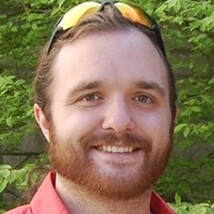 Our guest blogger this week is Caleb Brian! Caleb is a self-sustaining seventy in Community of Christ who lives in St. Paul, Minnesota with his wife Tiffany and dog Ramona. They attend the St. Paul Community of Christ. He works as a Product Development Specialist at 3m (think Post-It® Notes and Scotch™ Tape). He has a PhD in Chemistry from the University of Wisconsin and an undergraduate degree from Graceland University. Caleb spends his free time playing summer softball and winter volleyball. He also manages a vegetable garden and goes hiking as much as he can. Again we are very thankful for Caleb bringing his thoughts with us this week. I’ve often begun to wonder when the conversation changed from science and religion to science vs religion. When did it become one or the other, with people in both camps deciding that the other must possess some fallacy that makes it seemingly incorrect or unworthy of exploration? Shouldn’t both be about the questions, about the search for answers, and about understanding that there are so many incredible forces at work in the world today that we fail to comprehend? Growing up my parents started multiple iterations of house churches all while tackling the questions of embracing science and religion, seeing as my dad is a 70 and a biochemist, and my mom is a high priest and a recently retired nurse practitioner. My entire life has been a combination of the two, from searching for dinosaurs under rocks in our back yard to chemistry experiments in our basement in high school to actively participating in church youth groups growing up. At Graceland I studied Chemistry and got a minor in church leadership. At the University of Wisconsin where I received my doctorate in Chemistry I spent just as much time with people in the local Community of Christ congregation to live and imagine what a community of believers could really do if we had the time and resources (age old question, right?). Now we live within a half mile of the St. Paul, MN congregation, and it is fantastic to be a part of the neighborhood that surrounds the church, understanding the intricacies of this community and being a part of it. So where to dig in? Where to offer a small piece of my mind into the ongoing struggle of science and religion that can be captured in this guest opportunity. I think I’ll start here: “Gravity explains the motions of the planets, but it cannot explain who sets the planets in motion.” - Isaac Newton The beginning of time seems to always come up as a hot topic in the “war” between science and religion. A reading of Genesis 1 would posit that God spoke the universe into being, created contrasting pieces, and worked out all the small details within it. It’s a beautifully written creation story that reflected some sense of understanding of who we are in the vastness of space. Science on the other hand would say that the beginning of the universe took place via the Big Bang and that all matter that at one moment that had been highly compressed into a single dot erupted due to some unknown event to grow and swirl and splinter into the universe we observe today. It’s a compelling theory that reflects some sense of understanding of the visible universe around us. And why do the two have to compete? 13.8 billion year ago (give or take a few) something happened that caused a chain of events that led to Earth that led to organisms that led to humans. I believe that God could be in that space and watching over that expansion in ways that we still do not comprehend. Intriguing enough, it was a Roman Catholic Priest, Monsignor Georges Lemaitre, who is credited with the idea of the expanding universe that came to be referred to as the Big Bang theory. At the same time, I wonder why we spend so much time arguing between the circles of science and religion about something like the beginning of time when I don’t know that either should have a bearing on our interactions in this time and place. Whether God spoke the universe into being from simply nothing or compelled enough energy into a single massive particle to cause it to explode into everything we see and more should not be our driving force for interacting with the world today. There are countless new discoveries on a daily basis that will change the way we interact with the world more than arguing over how the universe began in the first place. This is where I think the new horizon of the intersection of science and religion must exist. For example, I was sitting in a discussion about recycling today. How, in the 1950s, consumerism shifted from durable materials to disposable materials and our rate of consumption has only increased from there. I’m constantly tempted to get the newest phone, but the one I have now is working just fine for what I need it to do. I look in my closet often at the vast array of shirts I have that I can wear to work and get bored sometimes because they are the same shirts I’ve worn for a few years now. A stunning statistic in our discussion this morning was that in the 1930’s women would have maybe bought two pieces of clothing a year and kept it for 5 years. Today the amount of clothing items purchased has jumped to 65 a year, and they’ll only be worn on average 3 times. Now, some could argue that is the increased purchase power we’ve gained in the last 80 years, but at the same time the science of clothing has changed in such a way that these goods are no longer made to last or at least to hold interest for long periods of time. But Caleb, this is supposed to be a discussion on science and religion, and now you’re talking about clothes? You’re right. I believe that our faith comes into action when we begin to consider the best use of our resources and the planet’s resources when we gain the increased purchase power that science has provided. For me, in Community of Christ we are called to value the Sacredness of Creation and to make Responsible Choices. Additionally: “The earth, lovingly created as an environment for life to flourish, shudders in distress because creation’s natural and living systems are becoming exhausted from carrying the burden of human greed and conflict. Humankind must awaken from its illusion of independence and unrestrained consumption without lasting consequences.” - Doctrine and Covenants 163:4b I would say that our faith calls us to more responsibly choose the clothing that we wear, how often we purchase it and from where, and then what do we do when that clothing has lost its ability to function or to “spark joy”. This then frees us up to step out of the silo of religion to begin to partner with organizations that are looking to use science to properly reduce the resource burden of our fashion (or other industries) on the planet. Indeed, there is great work looking at how to take old clothing and deconstruct it in such a way that it can be used as thread for new clothing (so cool!). To me, this facet of science then has no negative bearing on my understanding of God, rather it further highlights the incredible complexity in the universe that exists in God. I could go into a whole post about how amazing Organic or Analytical Chemistry are in terms of some of the minute details that take place in complex chemical reactions point to a facet of God in nature. 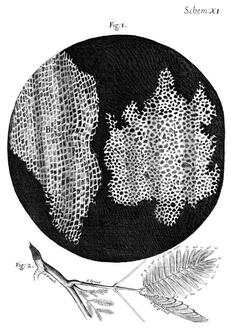 My final example for this post is this. As the future of the church continues to feel uncertain and undefined, the church has much to learn from the freedom to ask questions which is present in science. When we allow ourselves the openness to explore our faith and understand the things that we believe and why we believe them I feel that makes us stronger. If cell biology had stopped when Robert Hooke first described cork cells in the 1600s we wouldn’t have many of the medical advances that we have today. The same is true of our faith, of our growth as Christians, in understanding a God who deeply loves us and yearns for the wellness of creation. No longer is our faith “just because” but it begins to move and breath with a deeper sense of life about it. This deeper sense of life has the added benefit of making our faith community more relevant to our friends and neighbors who are searching for spiritual homes even if they too don’t know how to define them. We could imagine a question such as “How would you reconcile the creation story in Genesis 1 with the current understanding of the Big Bang theory?” We could invite them in, and offer to talk about that. About how a complex and undefinable God is present both in our faith and our scientific traditions. Then we could set about the task of understanding how the two can successfully interact in the world today to preserve what has been created. From humans to hippos, from sequoias to sunflowers, from paper to plastic, and many things in between. There is still much complexity left to explore in the universe and it’s my belief that it will take all kinds of religious and scientific believers to help us continue to push the boundaries of understanding while seeing the complexity and intimacy of God. This is what excites me about sitting at the intersection of science and religion on a daily basis. A big thank you to Caleb for being our guest blogger and helping us work through this difficult subject!
This week ask yourself how science impacts your faith and vice versa.
1 Comment
carey
11/22/2019 08:09:33 am
i LOVE this! it's not a competition, it's a multi-player cooperative that we need to work together to understand. Well done, Caleb!
Reply
Your comment will be posted after it is approved.
Leave a Reply. |
Please Note The views expressed here are those of the authors and do not necessarily represent or reflect the views of Community of Christ. We believe individuals should be allowed to have their own opinions and be at different places in their faith journey.
Categories
All
Archives
June 2021
|
|
Emporia Ministry
c/o Midlands Mission Center 7615 North Platte Purchase Drive Kansas City, Missouri 64118 Phone: (816) 221-4450 |
Copyright Midlands Mission Center 2024
|
International Headquarters
Community of Christ 1001 West Walnut Independence, Missouri 64050 Phone: (816) 833–1000 or (800) 825–2806 |
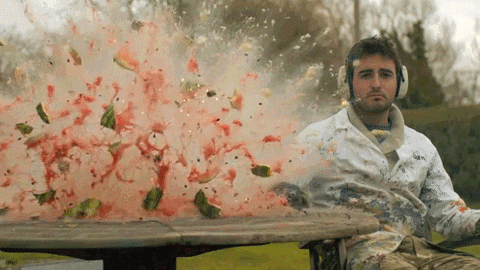

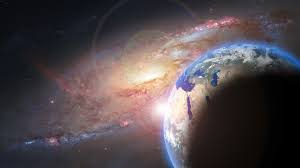

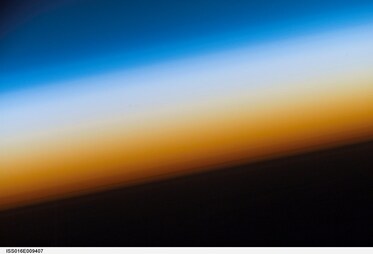

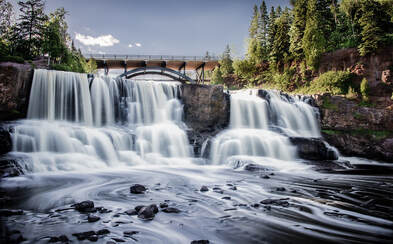

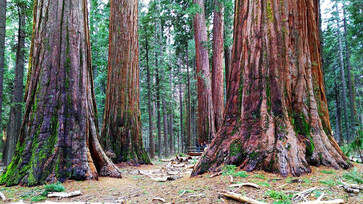

 RSS Feed
RSS Feed
